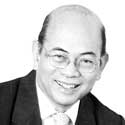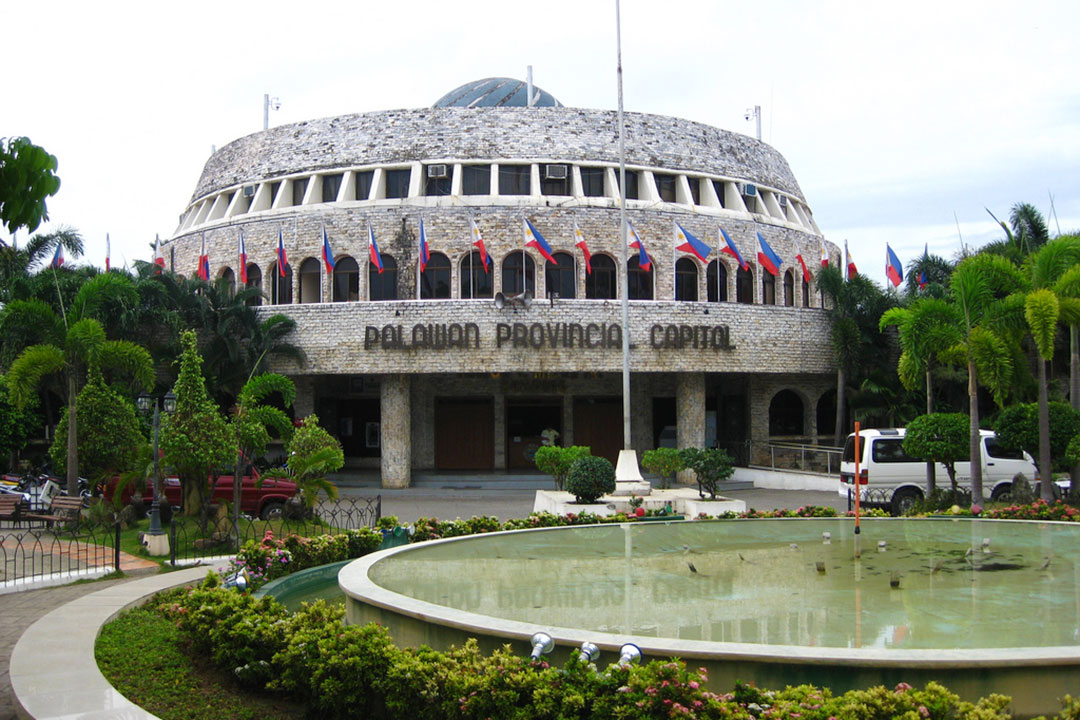
Human Side Of Economics
By Bernardo M. Villegas

(Part 3)
Because of the very nature of the Palawan Business Club (PBC) that was put up to apply the spirit of solidarity to the business community in this paradise province — which is endowed with 1,200 islands, lush forests, pristine beaches (especially San Vicente), and very diverse aquaculture and marine endowments — they sought my advice on which of the national socio-economic objectives they can particularly contribute to.
To define the national economic good, both Jess Estanislao and I made reference to the National Economic and Development Authority (NEDA) vision of Ambisyon Natin 2040 in which every Filipino should have attained the material comfort that citizens of First World Country (like South Korea or Taiwan) have already attained today. I also referred to what the present Administration should do to move towards that goal.
I first told them of my firm conviction that, on the basis of what we already have accomplished during the decade prior to the pandemic, the objective of the Government of Ferdinand Marcos, Jr. to attain GDP growth annually of 6-7% in the next five to six years is very much within reach. The reason I give is that with the critical mass of sound economic institutions (like the Central Bank and Department of Finance) we have built over the last 30 years of slow and painful reforms, together with our demographic dividend of a young and growing population, our population (115 million today) will be the basis of consumption-led growth, with purchasing power being mostly generated by OFW remittances, the earnings of the business process outsourcing-information technology (BPO-IT) industry, and the ever reliable domestic tourism sector.
Although our GDP growth of 6-7% is already among the highest in the region, it will not be enough to bring down our double-digit poverty incidence of some 13-15% to the desirable single-digit level of 9% or lower. We must have growth of 8-10% to really combat poverty more aggressively. To attain this rate of growth, the President must deliver on three critical points:
1. Improve the productivity of the agricultural sector so that it can grow at a modest 2-3%, which is the standard that was set by Thailand and Vietnam over the last two decades.
2. Increase the ratio of investment to GDP from an average of 21% today to close to the average of our East Asian neighbors, which is anywhere from 25% to 35%.
To do this there is no alternative but to attract a massive amount of Foreign Direct Investments (as Vietnam is doing) because the Philippines is highly indebted and is unable to generate enough long-term capital needed to continue the build, build, build program and to invest in large-scale agribusiness ventures like the Lionheart Farms. It is a good sign that large agribusiness enterprises from the United States, like Cargill and John Deere, are coming in a trade mission sometime in September to explore opportunities of investing in the Philippines in what called “precision agriculture” which can bring in both advance technology and long-term capital from the US.
Only capital and technology from abroad will enable us to accelerate our growth of 6-7% annually based on a consumption-led economy to 8-10% with a greater push from the side of capital formation or investments. The Government can only do so much as it tries to lower the debt-to-GDP ratio to much more comfortable levels below 60%. It must be recalled that before the pandemic that debt-to-GDP ratio was hovering at 30%, earning us upgrades in our credit rating.
3. Reduce significantly the huge financial leakages caused by corruption, both on the part of the Government and that of the private sector.
It is obvious that the Palawan business community — in partnership with both national and local governments — can do much when it comes to investments to improve agricultural productivity as Lionheart Farms is already doing. As regards increasing investments — especially FDIs — groups like the Palawan Business Club and the various business chambers have an important role in organizing road shows in countries rich with long-term capital and appropriate technology like Japan, South Korea, Taiwan, and Spain.
In fact, the PBC is already planning an intermediate stage of holding the next road show in the first quarter of 2024 in Metro Manila, to facilitate the attendance of the CEOs of the large business conglomerates and financial institutions that can be the source of at least whatever domestic long-term capital is still available before venturing abroad. In this regard, I told them how the Maharlika Fund — if properly focused on the right industries — can help attract larger amounts of FDIs.
Finally, I told them it was a good sign that their Governor was closely coordinating with the Institute for Solidarity of Asia (ISA) in the very important task of combatting corruption at all levels. In fact, Jess was even more bullish than I about the attainable growth rate if corruption is indeed eradicated. He said that Palawan should not be satisfied with a regional GDP growth rate of only 8-10% but should strive for a higher rate of 10-12%, closer to the rates attained by China during the glory years of Deng Xiao Peng in the last century.
To illustrate in a dramatic way that economic progress is not the end-all and be-all of integral human development, the rest of four days in paradise were spent on the celebration of the 400th anniversary of the start of Christian evangelization by the Agustinian Recollect Order in 1623.
The celebration had enough significance to warrant the presence of the Papal Nuncio himself, the Very Rev. Charles John Brown and the Archbishop of Manila, His Eminence Jose Cardinal Advincula. Also present were Bishop Pablo Virgilio David, President of the Catholic Bishops’ Conference of the Philippines (CBCP) and the Most Rev. Socrates C. Mesiona, Apostolic Vicariate of Puerto Princesa.
In one of the sessions during the Palawan Business Club road show, Rev. Fr. Rene Paglinawan, Order of Augustinian Recollect (OAR) and Archivist of the Order in Rome, gave the audience very important insights about the history of Christianity in Palawan. It was in 1623 when systematized evangelization of the entire province (the biggest in the Philippines) was started by the Agustinian Recollect order in Puerto Princesa. There were already some priests in Cuyo island before that year, but it was in 1623 that formal evangelization began.
Christianity in the Philippines has gone a long way during the last four centuries. Fr. Paglinawan is a top official in the entire Agustinian order worldwide. He is the order’s archivist based in Rome. He reminded me of top Filipinos who are also global heads of important religious orders, such as Brother Armin Luistro, F.S.C, who now heads the worldwide organization of the De La Salle Christian Brothers. Then there is Cardinal Luis Tagle who is one of the top officials in the Vatican, considered by some as a papabile.
(To be continued.)
Bernardo M. Villegas has a Ph.D. in Economics from Harvard, is professor emeritus at the University of Asia and the Pacific, and a visiting professor at the IESE Business School in Barcelona, Spain. He was a member of the 1986 Constitutional Commission.